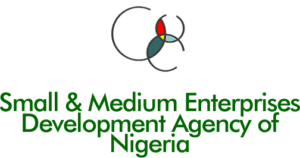GTBank has sufficient headroom to absorb shocks — Fitch
Fitch Ratings has affirmed Guaranty Trust Bank Limited’s (GTBank) long-term issuer default rating at ‘B’ and viability rating at ‘b’ with a stable outlook, the agency said in a new report.
According to the ratings, the bank’s stable outlook reflects Fitch’s view that risks to GTBank’s credit profile are captured at the current rating level, with sufficient headroom, under its base case, to absorb the fallout from operating- environment pressures.
“The ratings of GTBank are driven by its intrinsic creditworthiness, as defined by its ‘b’ viability ratings,” it added.
It explained that the bank’s viability rating takes into consideration its business concentration and sensitivity to Nigeria’s volatile operating environment, which is mitigated by solid capitalisation, healthy asset quality, solid through-the-cycle profitability and a deposit-driven funding profile.
GTBank is the fifth-largest banking group in Nigeria by asset at end of the first half of 2021. Its loan book forms a small proportion of total assets at 33 per cent as of the first half of 2021 but is concentrated by borrowers and sectors.
The report also noted that GTBank’s impaired (stage 3 under IFRS 9) loan ratio fell to six per cent at end of the period from 6.4 per cent at end of the financial year 2020, attributed to a big-ticket write-off.
“We expect only modest asset-quality deterioration over the next 18 months, notwithstanding its material oil and gas exposure and significant Stage 2 loans, given higher oil prices and sound collateralization.”
The ratings spotted that Oil and gas loans formed 43 per cent of the loan book at the end of the first half of the year and were mainly to the upstream sector.
However, Fitch said this book performed well in 2020, partly reflecting higher-than-expected oil prices and financial hedges taken out by borrowers to reduce the risk of lower oil prices.
Nevertheless, Fitch analysts reiterated the belief that a prolonged period of lower prices would put heightened stress on borrowers and on GTBank’s asset quality – although this is not our base case.
It said stage 2 loans were a significant 16 per cent of gross loans end of the first half of 2021 and largely comprised lumpy restructured loans -18 per cent of gross loans in total- concentrated in the oil and gas sector.
“Reserves coverage of Stage 2 loans was seven per cent.”
The bank’s profitability is a rating strength and remains robust, despite weakening in the first half of the year, due to lower yields on securities – though it accounted for 23 per cent of total assets- and competition for corporate customers, as a result of which lending margins contracted in the period.
Interestingly, Fitch recognised that the bank’s profitability is underpinned by wide margins and consistently low loan impairment charges.
The rating agency said operating profit/risk-weighted assets fell to 6.3 per cent, well below the bank’s nine per cent four-year average, but still outperformed most peers’.
Non-interest income, mainly from fees, rose in the first half and should continue to relieve some pressure on earnings, as should group diversification initiatives from cross-selling via the holding company, Guaranty Trust Holding Co.
GTBank’s Fitch Core Capital of 26 per cent in the first half is at the higher end among peers’ and the bank’s capital adequacy ratio (24 per cent) provides a solid buffer over regulatory requirements. The bank tangible leverage ratio which printed at a high 15.5per cent also outperforms peers’.
Fitch said the bank’s capitalisation is supported by high pre-impairment profit, which provides a solid buffer to absorb losses through the income statement.
Nevertheless, the ratings cap a caveat, saying that the lender’s capitalisation remains sensitive to naira devaluation due to GTBank’s dollarised balance sheet, borrower concentration and a high amount of stage 2 loans.




